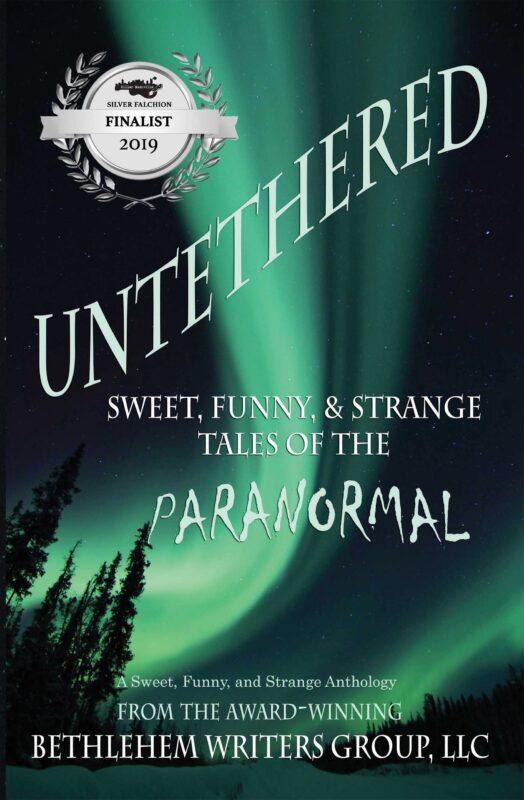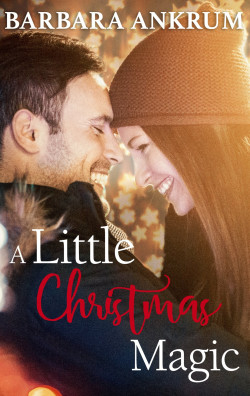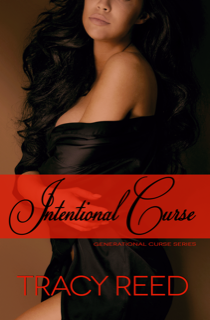Pitfalls of Research: Too Much vs. Too Little by @LyndiLamont
May 16, 2017 by Linda McLaughlin in category The Romance Journey by Linda Mclaughlin tagged as Linda McLaughlin, Regency romance, research, societyRecently I listened to a perfectly delightful Regency romance on audio, but some obvious errors nagged at me and got me to pondering which is worse, too much research or too little?
 Those of us who write books that require extensive research are always advised to not let the research show. Weave it as seamlessly as possible into the narrative. That makes perfect sense, though it isn’t easy to do. But what about too little research? That’s when errors become glaring enough that some readers, esp. the ones who also write, are pulled out of the story, saying “Wait a minute, that’s not right.”
Those of us who write books that require extensive research are always advised to not let the research show. Weave it as seamlessly as possible into the narrative. That makes perfect sense, though it isn’t easy to do. But what about too little research? That’s when errors become glaring enough that some readers, esp. the ones who also write, are pulled out of the story, saying “Wait a minute, that’s not right.”
Sometimes it’s a matter of historical characters acting or speaking in modern fashion. This can be one of the most glaring problems. Then there is the matter of social mores of the time, which vary from one period to the next.
One of the biggest traps novelists can fall into is writing historical characters with 21st century mores. And nothing can make the reader want to throw a book across the room quicker. This especially applies to women. The double standard still exists, but it was much greater in previous centuries. A young woman’s reputation was golden.
War and social unrest have always upset the normal patterns of life, and social mores tend to fall by the wayside during such periods. Still, a historical female character who shows no regard for her reputation isn’t believable unless she’s already a fallen woman and has no reputation to lose.
 Personally, I don’t necessarily mind a heroine who flaunts society’s rules; I just need to believe that she knows what she is doing and is well motivated in her choices. The woman who doesn’t understand the consequences of her actions strains credibility. Women had a lot more to lose in the not-so-good old days.
Personally, I don’t necessarily mind a heroine who flaunts society’s rules; I just need to believe that she knows what she is doing and is well motivated in her choices. The woman who doesn’t understand the consequences of her actions strains credibility. Women had a lot more to lose in the not-so-good old days.
In the book in question, the problem seemed to be more one of the author not understanding how the social season worked. Societal rules were much more stringent, esp. among the upper classes. It was one way the maintained their air of privilege. It all seems ridiculous to us now, but the aristocracy took these things very seriously.
 In general, a young lady could not be out in society unless she had been presented at court and made her bow to the Queen. In my Regency romance, Lady Elinor’s Escape, Lady Elinor is hiding out in a dress shop, pretending to be a seamstress, which means she could not also be out in society. But we writers find ways around details like that. The one ball scene in the book is a masquerade ball she attends only because the shop owner retrieved a discarded invitation from the trash. As long as Elinor leaves before the unmasking at midnight, she feels the risk is worth it.
In general, a young lady could not be out in society unless she had been presented at court and made her bow to the Queen. In my Regency romance, Lady Elinor’s Escape, Lady Elinor is hiding out in a dress shop, pretending to be a seamstress, which means she could not also be out in society. But we writers find ways around details like that. The one ball scene in the book is a masquerade ball she attends only because the shop owner retrieved a discarded invitation from the trash. As long as Elinor leaves before the unmasking at midnight, she feels the risk is worth it.
In writing, like Regency society, it’s best to know the rules before you (or your characters) break them.
So too much research or too little? I’m enough of a history freak to prefer too much research showing to wondering if the author did any at all. What do you think?
Linda McLaughlin
aka Lyndi Lamont
http://lindalyndi.com
Affiliate Links
A Slice of Orange is an affiliate with some of the booksellers listed on this website, including Barnes & Nobel, Books A Million, iBooks, Kobo, and Smashwords. This means A Slice of Orange may earn a small advertising fee from sales made through the links used on this website. There are reminders of these affiliate links on the pages for individual books.
Search A Slice of Orange
Find a Column
Archives
Featured Books
HELLO SPAIN, GOODBYE HEART
Dayna hopes for a second chance at love . . . but . . .he wears a wedding band.
More info →UNTETHERED: SWEET, FUNNY, AND STRANGE TALES OF THE PARANORMAL
Stoke the campfire and get ready for some chills and goosebumps when you open this paranormal addition to the award-winning Bethlehem Writers Group's "Sweet, Funny, and Strange" anthologies.
More info →A LITTLE CHRISTMAS MAGIC
Christmas in Marietta, with all the trimmings, may be just the ticket.
More info →INTENTIONAL CURSE
Before Dr. Eric King was with Kyla, he chased Olivia Bennett.
More info →Newsletter
Contributing Authors
Search A Slice of Orange
Find a Column
Archives
Authors in the Bookstore
- A. E. Decker
- A. J. Scudiere
- A.J. Sidransky
- Abby Collette
- Alanna Lucus
- Albert Marrin
- Alice Duncan
- Alina K. Field
- Alison Green Myers
- Andi Lawrencovna
- Andrew C Raiford
- Angela Pryce
- Aviva Vaughn
- Barbara Ankrum
- Bethlehem Writers Group, LLC
- Carol L. Wright
- Celeste Barclay
- Christina Alexandra
- Christopher D. Ochs
- Claire Davon
- Claire Naden
- Courtnee Turner Hoyle
- Courtney Annicchiarico
- D. Lieber
- Daniel V. Meier Jr.
- Debra Dixon
- Debra H. Goldstein
- Debra Holland
- Dee Ann Palmer
- Denise M. Colby
- Diane Benefiel
- Diane Sismour
- Dianna Sinovic
- DT Krippene
- E.B. Dawson
- Emilie Dallaire
- Emily Brightwell
- Emily PW Murphy
- Fae Rowen
- Faith L. Justice
- Frances Amati
- Geralyn Corcillo
- Glynnis Campbell
- Greg Jolley
- H. O. Charles
- Jaclyn Roché
- Jacqueline Diamond
- Janet Lynn and Will Zeilinger
- Jaya Mehta
- Jeannine Atkins
- Jeff Baird
- Jenna Barwin
- Jenne Kern
- Jennifer D. Bokal
- Jennifer Lyon
- Jerome W. McFadden
- Jill Piscitello
- Jina Bacarr
- Jo A. Hiestand
- Jodi Bogert
- Jolina Petersheim
- Jonathan Maberry
- Joy Allyson
- Judy Duarte
- Justin Murphy
- Justine Davis
- Kat Martin
- Kidd Wadsworth
- Kitty Bucholtz
- Kristy Tate
- Larry Deibert
- Larry Hamilton
- Laura Drake
- Laurie Stevens
- Leslie Knowles
- Li-Ying Lundquist
- Linda Carroll-Bradd
- Linda Lappin
- Linda McLaughlin
- Linda O. Johnston
- Lisa Preston
- Lolo Paige
- Loran Holt
- Lynette M. Burrows
- Lyssa Kay Adams
- Madeline Ash
- Margarita Engle
- Marguerite Quantaine
- Marianne H. Donley
- Mary Castillo
- Maureen Klovers
- Megan Haskell
- Melanie Waterbury
- Melisa Rivero
- Melissa Chambers
- Melodie Winawer
- Meriam Wilhelm
- Mikel J. Wilson
- Mindy Neff
- Monica McCabe
- Nancy Brashear
- Neetu Malik
- Nikki Prince
- Once Upon Anthologies
- Paula Gail Benson
- Penny Reid
- Peter J Barbour
- Priscilla Oliveras
- R. H. Kohno
- Rachel Hailey
- Ralph Hieb
- Ramcy Diek
- Ransom Stephens
- Rebecca Forster
- Renae Wrich
- Roxy Matthews
- Ryder Hunte Clancy
- Sally Paradysz
- Sheila Colón-Bagley
- Simone de Muñoz
- Sophie Barnes
- Susan Kaye Quinn
- Susan Lynn Meyer
- Susan Squires
- T. D. Fox
- Tara C. Allred
- Tara Lain
- Tari Lynn Jewett
- Terri Osburn
- Tracy Reed
- Vera Jane Cook
- Vicki Crum
- Writing Something Romantic
Affiliate Links
A Slice of Orange is an affiliate with some of the booksellers listed on this website, including Barnes & Nobel, Books A Million, iBooks, Kobo, and Smashwords. This means A Slice of Orange may earn a small advertising fee from sales made through the links used on this website. There are reminders of these affiliate links on the pages for individual books.







































